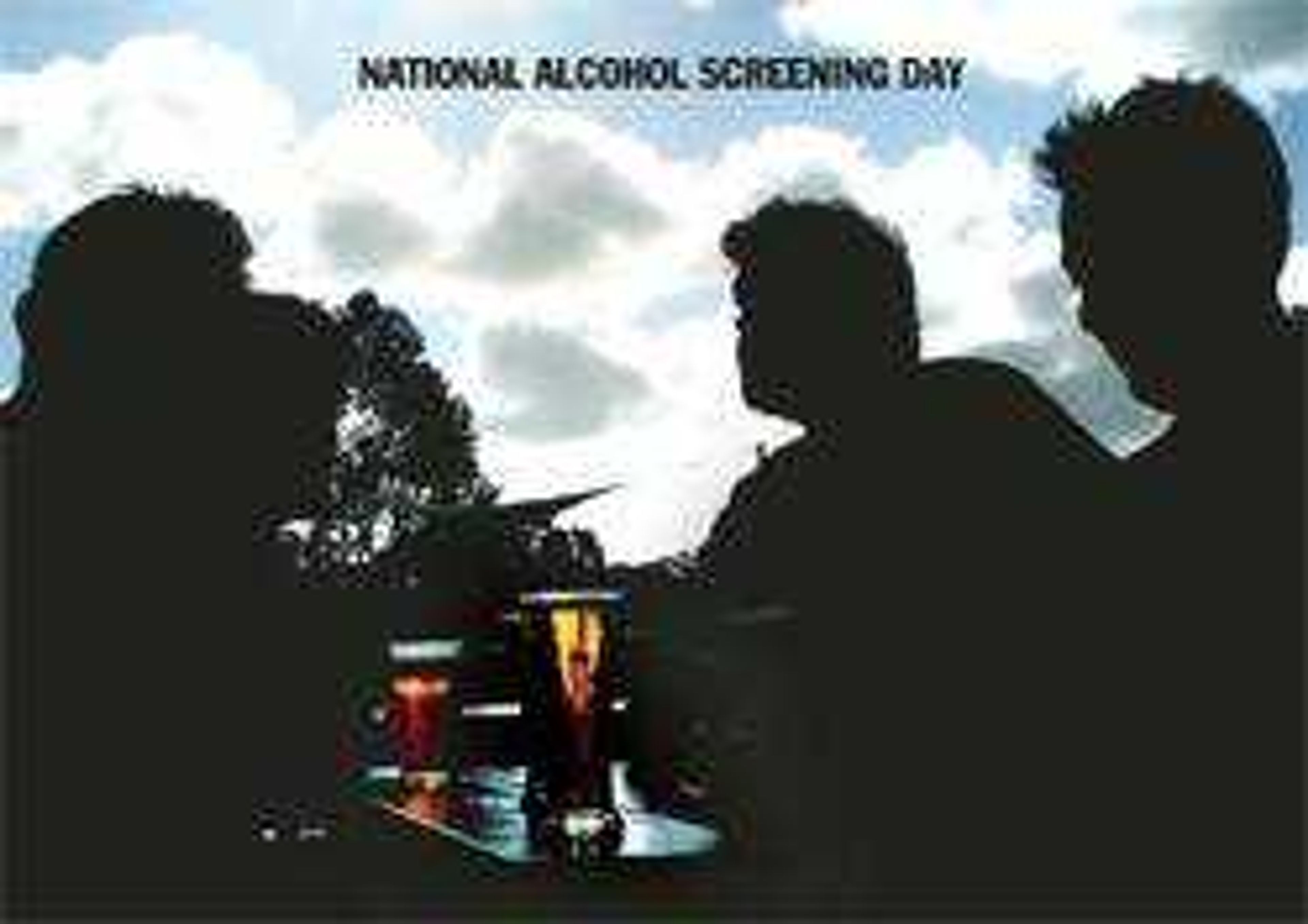Mixed drinking messages
A person may believe his drinking is under control, but alcohol could be ruining his health. For most adults who drink in moderation, alcohol causes few problems. Nearly three adults in 10 are "risky drinkers," according to information provided for today's National Alcohol Screening Day, promoted by Screening for Mental Health Inc. ...
A person may believe his drinking is under control, but alcohol could be ruining his health.
For most adults who drink in moderation, alcohol causes few problems. Nearly three adults in 10 are "risky drinkers," according to information provided for today's National Alcohol Screening Day, promoted by Screening for Mental Health Inc. of Wellesley Hills, Mass., as part of Alcohol Awareness Month. Risky drinkers can go on to abuse alcohol but not be dependent on it. Some can develop a dependence to the point where alcohol controls their lives.
Risky or dependent drinking can lead to serious health problems. When counselors at the Gibson Center in Cape Girardeau evaluate a potential client, they often find ulcers or other gastric problem as a result of the acid content of alcoholic beverages, said director John Gary.
"It erodes the lining of the stomach and esophagus," Gary said. "It really does a bang-up job on the body."
According to Screening for Mental Health, Inc., men and women react differently to alcohol. Overall, women drink less than men but are more likely to have heart muscle damage and liver or brain damage. Alcohol consumption can also bring on high blood pressure and hepatitis C. Drinking during pregnancy can damage the fetus.
Dana Branson of the Family Counseling Center in Cape Girardeau said there is no known minimum amount of alcohol that causes fetal alcohol syndrome in babies. Damage varies from woman to woman.
"You never know how the baby is going to be affected," Branson said. "That's why you're not supposed to drink anything while you're pregnant."
Women develop organ damage faster and at lower levels of alcohol consumption than men because a woman's body has less water than a man's, according to Screening for Mental Health. That causes their blood alcohol content to increase faster.
Mati Stone of Personal Solutions, a local counseling practice, said there may be psychological and physical reasons for that.
"One of the things with women is that they tend to drink alone, and it's hidden more," Stone said. "Women tend to drink with shame and guilt issues. They hit women much harder than men."
Alcohol and aging
With age, tolerance for alcohol diminishes. In addition, alcohol often interacts with prescription and over-the-counter drugs.
Professionals have found that the younger a person is when he begins drinking, the more likely he is to abuse alcohol or become dependent on it. And young people don't always recognize the danger. Almost 40 percent of high school seniors said they saw no great risk in consuming four or five drinks nearly every day.
Alcohol abuse and dependence can lead to legal and social problems, which can affect one's health -- auto accidents, violence, accidental trauma. It can also lead to paranoia or depression.
So when a patient comes to a counseling center or hospital for treatment, a thorough screening is done because treatment involves a change in the patient's overall life. While some people voluntarily come to a treatment center, most clients are referred, either by a judge, an employer, or a family member. Some women seek rehabilitation as a condition of reclaiming their children who were removed from the home.
Types of treatment vary, but all say the best treatment is support. All counselors recommend Alcoholics Anonymous, Narcotics Anonymous or any other 12-step spiritual program. Support programs are one facet of treatment that stresses a change not only in drinking habits but an entire lifestyle change. Branson compares addiction to an abusive spouse.
"It plays serious and dangerous mind games on you," she said. "That's why we recommend AA. When you start falling into old behavior patterns, you have people to catch you and say 'I've been there myself.' It's so important for recovery."
Gary, who manages three Gibson centers in Southeast Missouri, said treatment means changing thinking and behavior.
"They need to get away from their old 'using' buddies and reach out and make new friends," Gary said.
Recovery is not easy. Branson and Gary agree that established habits are hard to break, and relapse is often part of recovery.
"If a person has been drinking 30 years and has one year clean, there may be slips," Gray said. "We call that a slip, not a relapse. Slips will happen."
Slips, he said, teach the recovering alcoholic the difference between going back to alcohol abuse and recognizing that he has made a mistake and having the determination to go forward.
"It's part of being human," he said.
Treatment is available to anyone regardless of ability to pay. Many centers accept Medicaid. The Gibson Centers have grant money available to help people who are not on Medicaid. All accept insurance and private pay.
lredeffer@semissourian.com
335-6611, extension 160
Connect with the Southeast Missourian Newsroom:
For corrections to this story or other insights for the editor, click here. To submit a letter to the editor, click here. To learn about the Southeast Missourian’s AI Policy, click here.








